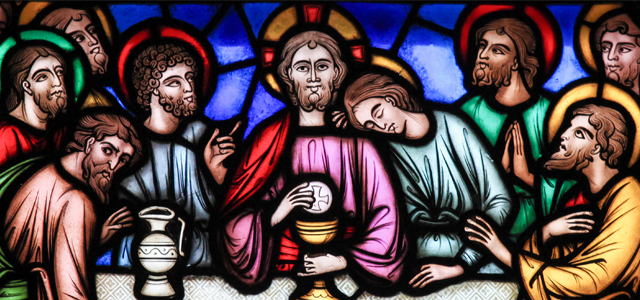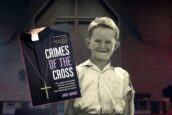
Forming Disciples -Theologically

The theological world recently mourned the death of Professor James Cone, a prominent African American theologian who taught for many years at Union Theological Seminary in New York. Among his influential and prophetic books were A Black Theology of Liberation and The Cross and the Lynching Tree.
At his funeral in early May, the eulogy was delivered by the even more famous African American public intellectual, Cornell West. By any measure this address was stunning in its oratorical and prophetic power, moving in the depth of its tribute, and inspiring in its proclamation of the gospel’s hope. It is well worth watching; a simple Google search will take you to it very quickly.
West referred to the challenges Cone faced when growing up in deeply-segregated Arkansas in the pre-civil rights days. He drew attention to the way Cone’s family and his church (the African Methodist Episcopal Church) had shaped him to be the person he was and to have the gospel commitments he did.
Professor West made two points about this. First: “That’s what we need these days,…the spirit of the tradition that produced a James Cone.”
Second: “He was already fortified before he got to Union Theological Seminary.”
Both of these comments are worth thinking about in the context of the Uniting Church. They prompt two questions: ‘What kind of people should our church communities produce?’ and ‘What does a theological education contribute to those already formed by their churches as Christian disciples?’
What kind of people should our church communities produce? The obvious answer to that question is ‘all kinds of people’. And so it should be. We are not in the business of producing clones. Disciples of Jesus come in all shapes and sizes and with all manner of gifts, grace, personalities, flaws and strengths. But the question reasonably invites some deeper reflection.
Among the characteristic practices of the Christian faith are hospitality to strangers, love of enemies, a readiness to forgive, boldness in speaking the truth to power, generosity in the use of money and other possessions, and humility in confessing Jesus Christ as Lord.
Such characteristics cannot be taken for granted. Belief that these are gospel virtues does not by itself translate into the practice of those virtues. In my experience, our own willingness to embody such virtues might begin with some sense that they are what God requires of us but that such willingness gets real traction when we see them embodied and practiced by others.
This probably means thinking about the church – both its present and future – less in terms of age, social and cultural demographics, and more in terms of something like a virtue-profile. It might mean we insist on asking how many homeless and unemployed people are in the congregation at least as urgently as we ask how many young people are involved. We might think about our churches in terms of how welcoming we are to refugees, to the psychiatrically ill, and to the socially dysfunctional.
Churches that are intentional about such a profile for their congregations not only practice the gospel, they are likely to form their members ever more deeply into those gospel virtues, precisely because they see them embodied all around. People are thus nurtured in a tradition that produces certain kinds of people in the same way James Cone’s home church helped to make him the prophetic theologian he was.
‘What does a theological education contribute to those already formed by their churches as Christian disciples?’
According to Cornell West’s eulogy, James Cone was already ‘fortified’ before he got to theological college. Undoubtedly, James Cone would be a fascinating case study in examining the added value of theology to discipleship. But let me reflect on this question more generally.
Burdened by some conventional definitions, there is a strong tendency to think of theology as merely an intellectual discipline. And, on top of that, the study of theology in the mainline protestant tradition has been deeply weakened by the notion that it consists of shuffling people from one point to another on some liberal-conservative spectrum.
I would argue that a theological education is not about developing a theological ‘position’ at all. Nothing so impoverishes the contribution of theology to the church when it is presented in those terms or when it is expected to function, or is caricatured, in that way.
Rather, it is about shaping a theological imagination. It involves learning to see and experience God, the world, Jesus, salvation, mission, church and neighbours through an ongoing critical but constructive engagement with the tension-filled biblical material, an immersion in the ebb and flow of the history of Christian doctrine, and a ruthlessly honest familiarity with Christianity’s history and its diverse practices.
Such engagement, immersion and familiarity doesn’t produce a theological ‘position’, but it offers an expanded Christian imagination.
This leads, in turn, to particular ways of praying, loving, worshipping, caring, speaking, living and leading.
The study of theology can thereby help to form people who variously demonstrate the restlessness of so many of the biblical writers, who share the intellectual curiosity and confidence of the church’s great theologians, who know the brokenness but also the promise of all theological utterances, and who take on the impatient irritability of the church’s great activists and prophets.
From what I know of James Cone, I think his theological work did produce such outcomes.
They are also the outcomes that potentially lie before anyone who dares to take on the unsettling but creative and hope-filled business of studying Christian theology.
This piece first appeared on Crosslight
Dr Geoff Thompson coordinates Systematic Theology at Pilgrim Theological College. He will be the keynote speaker at School of Discipleship 2018.




























































